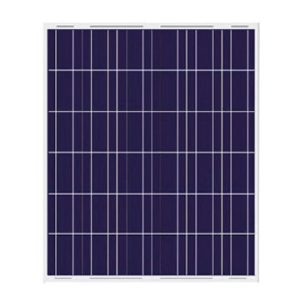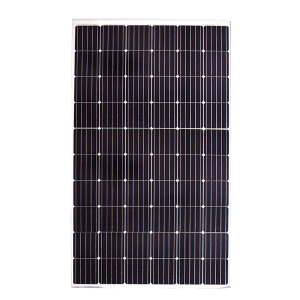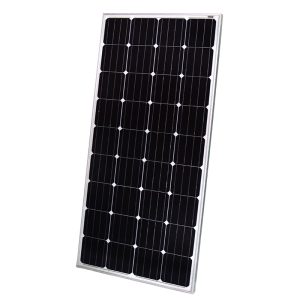Solar panels are an eco-friendly way to utilize the abundant renewable energy provided by the sun. With recent improvements in solar technology and reduced costs, solar power systems have become increasingly popular for residential, commercial, and industrial applications. 24 volt 250 watt solar panels, in particular, offer an efficient medium-power option well-suited for a variety of uses.
What are 24V 250W Solar Panels?
24 volt solar panels have a nominal voltage output of 24V when operating at peak conditions. 250 watts is the power rating, indicating the maximum wattage the solar panel can produce when directly facing intense sunlight. Most quality 250W panels today have solar cell efficiency ratings of 15-22%.
Key specifications for 24V 250W panels are:
- Power per panel: 250 watts
- Voltage at maximum power (Vmp): 30-40V
- Current at maximum power (Imp): Around 8-9A
- Cell efficiency: 18% on average
Compared to 12V panels, 24V solar panels require thinner, less expensive wiring and typically run more efficiently. That’s why 24V systems are widely used for medium-scale solar setups including household off-grid power, RV solar, industrial power generation, remote battery charging, and grid-tie solar arrays.
Components Needed for a 24V Solar System
While the panels themselves produce the electricity, there are other vital components required to effectively harvest and utilize that energy:
Solar Charge Controller
A solar charge controller regulates the voltage and current coming from the solar panels going to battery and prevents overcharging. For 24V 250W solar panels, a 40-60 amp MPPT charge controller is recommended. MPPT technology helps maximize solar input.
Batteries
Deep cycle lead-acid batteries safely store energy from the panels. For full-time off-grid use, 400-600 Ah 24V battery banks are typical for small systems with 250W panels. The batteries should match voltage rating of the panels and be appropriately sized for your average load.
Inverter
A DC to AC inverter converts solar energy stored in batteries into standard 120/240V AC power used for household appliances and devices. Inverter wattage must match your expected AC load.
Cabling and Safety Gear
Properly rated wiring, disconnects, fuses, etc. ensure safe and efficient power transfer in the system. Your solar installer will determine adequate cable gauge and safety equipment based on your system design.
Sizing a 24V Solar Power System
Determining the appropriate number of 250W 24V solar panels, battery capacity, and inverter size for your needs is an important part of the design process. Consider these factors:
Location
Your regional solar potential impacts production. Sunnier climates produce more solar energy year-round.
Power Consumption
Calculate your average and peak daily load in watts to size your system components accordingly. Monitor usage for 1-2 months to get accurate data.
Future Expansion
Expect your power needs to rise over 5-10 years. Oversize wiring and leave physical space for additional panels.
Budget
Panel and battery costs make up the bulk of solar power system expenses. Define your budget to choose suitable components.
Professional solar installers will analyze your electrical requirements, usage habits and patterns, budget, and other constraints before right-sizing a solar system for your situation.
Installation Factors for 24V Solar Panels
Proper installation is key for 24V solar systems to function efficiently for 20-30 years. Consider these guidelines:
Direction
In the northern hemisphere, south-facing rooftops receive peak sunlight. Facing panels south optimizes production.
Tilt Angle
The solar array should be tilted at an angle equal to your latitude for maximum annual energy generation. However, favoring seasonal performance or using year-round fixed tilt are also options.
Shading
Solar panels are sensitive to shading, which can drastically cut output. Even a small amount of shade covering the solar cells makes a big difference. Mount panels in a location with no obstructions and minimal potential for future shade.
Ventilation
Allow adequate airflow behind the panels and ensure no contact between panel backs and the mounting surface. This prevents overheating and builderup of dust, dirt or snow that can block sunlight.
Durable Mounting
Use heavy-duty mounting equipment secured to rafters or concrete footings, not just the roof surface. This keeps solar arrays intact in severe weather. Work with qualified installers to mount panels to code.
Properly installing 24V 250W solar panels is worthwhile to maximize production over their 25+ year lifespan.
Applications Well-Suited for 24V 250W Solar Panels
With their medium power output, 24V 250 watt solar panels are ideal for uses including:
Off-Grid Cabins and Tiny Homes
For remote getaways, 250W 24V panels provide ample power for lighting, appliances and electronics while maintaining simplicity and cost-effectiveness.
Solar RV and Camper Setups
Their compact size makes flexible 250W panels perfect for mounting on RVs to charge batteries and power vent fans, lights and accessories.
Medium-Scale Battery Charging
Stacked 24V 250W panels can charge multiple large battery banks up to the 600-1200Ah range for facilities like telecom towers, agricultural operations etc.
Residential Solar
Stringing together 4-8 250W panels meets many households’ daily energy consumption of 1-2kWh through storage in a large battery bank.
Boats/Yachts
Marine grade 24V panels reliably charge deep cycle trolling batteries during days at anchor or at sea.
In the right application, 24V 250 watt solar panels hit the sweet spot between production capacity and system affordability.
Pros and Cons of 24 Volt 250 Watt Solar Panels
Every solar panel technology and power rating has inherent advantages and disadvantages. Homeowners, installers and system designers weigh these factors:
Pros
- Well-matched to a wide range of 24V battery banks and off-grid inverters
- Higher voltage than 12V panels enables thinner, cheaper cabling
- Compact size and weight for flexibility in mounting options
- Good output for mid-sized solar arrays 2-6 panels in size
Cons
- Lower wattage than commercial-scale panels over 300W
- Requires charge controller and other BOS equipment
- Can require multiple panels to run large loads
- Output dependent on intermittent sun exposure
When factors like roof space, energy demand, and budget align – 24V 250W panels present an efficient, economic solar solution.
Sourcing Quality 24V 250W Solar Panels
With manufacturers worldwide producing solar panels, product quality varies. Here are tips for buying reliable 24V 250W solar panels:
- Select established brands like Rich Solar, Renogy, WindyNation, etc. that back products with 20-25 year power output warranties.
- Verify key specs like cell efficiency(18%+), voltage, amperage ratings meet needs.
- Check for salt mist corrosion testing for marine environments.
- Buy UL or ETL certified panels tested to safety standards.
- Compare prices across local and online solar retailers.
- Purchase solar panels and other system components from the same supplier to ensure compatibility.
Reputable manufacturers produce robust, high-efficiency 24V 250W panels that provide years of reliable service. Check for ratings from neutral third-party testing laboratories as well. Investing in quality gear upfront saves money long-term.
Final Thoughts
Equipped with a sound understanding of product specifications, system components, installation and buying considerations – you’re ready to leverage 24V 250W solar panels for your off-grid, grid-tied or mobile energy needs. If this overview didn’t address a burning question you still have regarding 250W 24V solar panels, check out Solar Exporters’ team of experts for personalized insight. With some thoughtful planning guided by solar professionals, 24V 250 watt panels can be the cornerstone of a self-reliant solar energy system meeting household or business needs.



